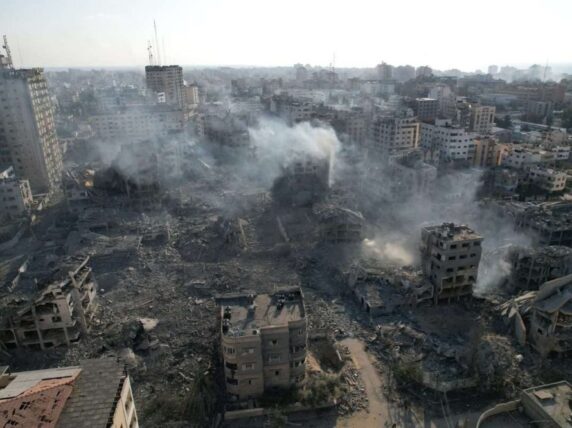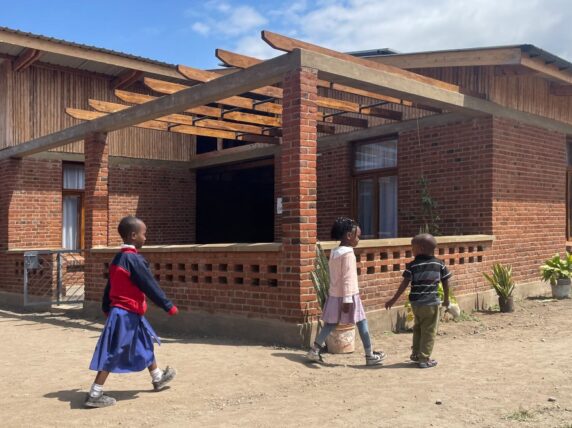Why Covid-19 response and recovery plans can’t afford to forget people with disabilities
Sightsavers has received a stream of stories from people with visual impairment and other disabilities revealing that they are being forgotten in the Covid-19 response.
We know that the term “people with disabilities” covers a vast and diverse group of people, including myself. Some people with disabilities may be more at risk of getting Covid-19. We also know that just under half of those aged over 60 – the age group most affected by Covid-19 – have a disability of some kind. And a lot of people who have had Covid-19 became at least temporarily disabled by it.
Leaving people with disabilities behind in Covid-19 responses is not an option. We sit at the very heart of the crisis. We are the most affected yet the least supported.
Exacerbating inequalities
Before Covid-19, people with disabilities around the world were already experiencing significant barriers to healthcare for various reasons. This crisis has exacerbated these pre-existing inequalities. If people with disabilities continue to be marginalised as they have always been, millions of people will be at risk.
Barriers to people with disabilities during the crisis include:
- Not being given vital Covid-19 information in accessible formats.
- Preventative measures being inaccessible to people with disabilities, for instance, hand washing stations that are out of reach of wheelchair users.
- Being denied essential support, such as personal guides, due to social distancing requirements.
- Being deprioritised in Covid-19 healthcare. People with disabilities have reported being unable to access testing, treatment and rehabilitation support.
Feeling the impact
Here in Kenya, the only disability-inclusive Covid-19 services available are operating in the main cities, such as Nairobi, and a handful of county-level hospitals. But many who have a disability in the remote parts of the country are not going to be able to come to the capital if they have the virus.
The government needs to ensure that people with disabilities, many of whom face economic hardship, need to be able to access these services where they are – at their nearest local health centre – and at no cost to them.
Subscribe to our newsletter
Our weekly email newsletter, Network News, is an indispensable weekly digest of the latest updates on funding, jobs, resources, news and learning opportunities in the international development sector.
Get Network NewsAcross Kenya, social distancing and quarantine measures are disrupting the care many people with disabilities require. The need for prosthetics or a wheelchair does not stop because of Covid-19. Yet services to provide these have been reduced. This is having huge ramifications for people – including myself – who are now struggling to leave the house, go to work or even live independently.
It is no surprise we are seeing a decline in good mental health among people with disabilities. But until we have expansive data, we will not be able to show how widespread these issues have become.
Finding solutions
Access to Covid-19 care and other essential healthcare on an equal basis is vital to increasing the participation of people with disabilities in daily life, and to improve our overall wellbeing during this pandemic.
So what is needed to make this happen?
- First and foremost, we cannot forget the mantra “nothing about us without us”. Governments need to consult people with disabilities at all stages of the Covid-19 response, including in policy development, programme planning and implementation. This includes developing standalone, disability-specific budgets.
- Ensure people with disabilities can stay safe and overcome the challenges of the pandemic in a dignified way. This includes providing public health information that people with a diverse range of disabilities can access and understand.
- Include people with disabilities in Covid-19 healthcare surveillance and disaggregated data collection.
- Women and girls with disabilities are subject to intersecting forms of discrimination, while women and girls are disproportionately impacted by Covid-19. We need gender and disability-sensitive responses. There is a particularly pressing need to address the sexual and reproductive health and rights of women with disabilities, whose struggle in this regard has become more urgent during the pandemic.
- Include people with disabilities in the design of awareness-raising campaigns on gender-based violence and the misuse of drugs and alcohol – both of which are increasing due to Covid-19 restrictions.
- Those who support people with disabilities must be provided with the protective equipment they need.
- Ensure assistive devices are visible and affordable for all who need them. Rehabilitation services must be included in emergency Covid-19 health plans.
Using our influence.
In May, the UN released recommendations for making the Covid-19 response and recovery plans inclusive of people with disabilities. We all have a responsibility and an opportunity to influence countries as members of the UN to follow these guidelines.
Crucially, we must ensure the UN’s own Disability Inclusion Strategy results in the rights and needs of people with disabilities being recognised and met across the entire UN system, including within its emergency pandemic responses.
These issues cannot be put on the backburner. As the world continues to travail through this global crisis, we cannot forget the one billion people with disabilities who are facing the pandemic without the recognition or support they need.
Help fight for equality and inclusing by joining to the Bond Disability and Development Group.
Category
News & Views



